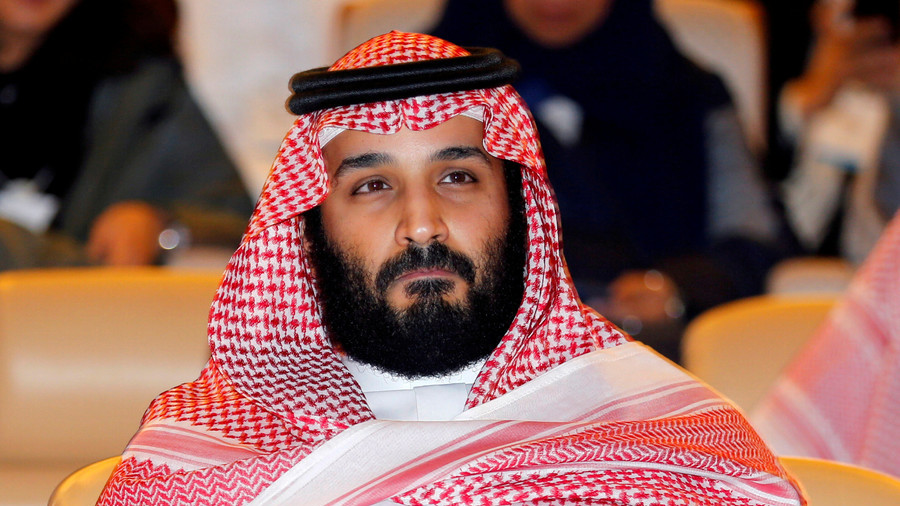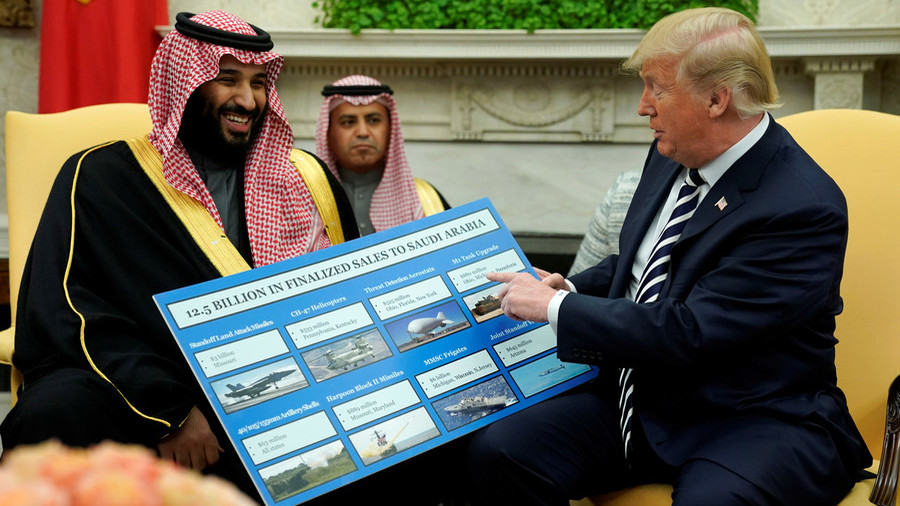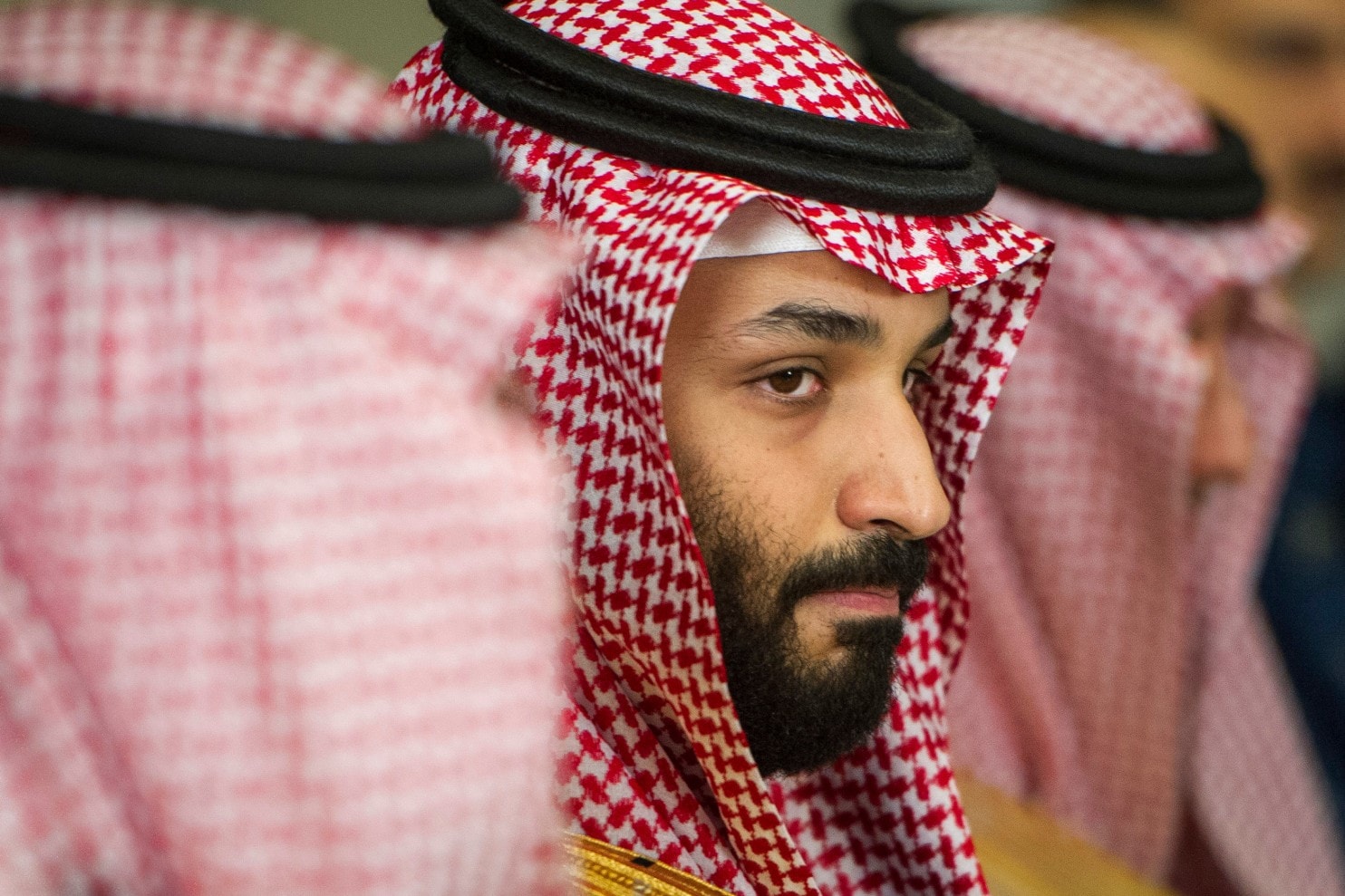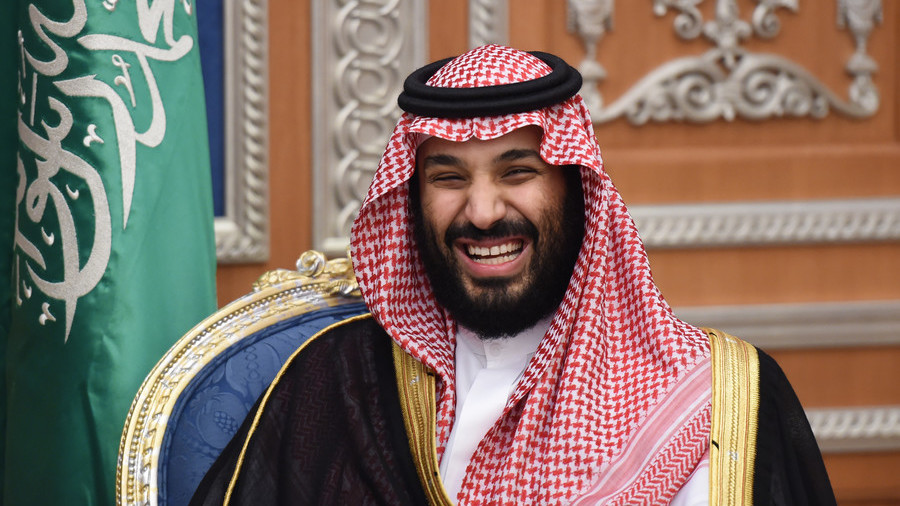The Saudi prince Bin Salman, like a loose cannon or a pixel escaped the control of the System, continues to amaze us with a series of declarations at the limit of the improbable.
“Israelis have right to their own land”
Saudi Arabia’s crown prince said in a published interview that Israelis are entitled to live peacefully on their own land, another public sign of an apparent thawing in ties between the two countries.
Asked if he believes the Jewish people have a right to a nation state in at least part of their ancestral homeland, Mohammed bin Salman was quoted by U.S. magazine The Atlantic as saying: “I believe the Palestinians and the Israelis have the right to have their own land. But we have to have a peace agreement to assure the stability for everyone and to have normal relations.”
Saudi Arabia – birthplace of Islam and site of its holiest shrines – still does not officially recognize Israel. It has maintained for years that normalizing relations hinges on an Israeli withdrawal from Arab lands captured in the 1967 Middle East war – territory Palestinians seek for a future state. “We have religious concerns about the fate of the holy mosque in Jerusalem and about the rights of the Palestinian people. This is what we have. We don’t have any objection against Israel in itself,” said Prince Mohammed, who is touring the United States to drum up investments and support for his efforts to contain Iranian influence.
Increased tension between Tehran and Riyadh has fueled speculation that shared interests may push Saudi Arabia and Israel to work together against what they regard as a common Iranian threat. “There are a lot of interests we share with Israel and if there is peace, there would be a lot of interest between Israel and the Gulf Cooperation Council countries,” Prince Mohammed added.
The German foreign ministry welcomed his comments and ministry officials underscored the Saudi role in pushing for an Arab peace initiative as early as 2002.
“The prince’s comments are very close to the position of Germany and the EU: We need a two-state solution and serious negotiations to achieve that,” said one ministry official. “Israelis and Palestinians have a right to peaceful lives in their own country.”
Israeli-Palestinian peace talks envisaging a Palestinian state alongside Israel have been frozen since 2014.
Saudi Arabia opened its air space for the first time to a commercial flight to Israel last month, which an Israeli official hailed as historic following two years of efforts.
In November, an Israeli cabinet member disclosed covert contacts with Saudi Arabia, a rare acknowledgment of long-rumoured secret dealings which the old burocrats of Riyadh still denies.
Though the elder and obsolete Saudi Arabia’s king Salman condemned U.S. President Donald Trump’s move to recognize Jerusalem as the capital of Israel last year, Arab officials told Reuters at the time that Riyadh appears to be on board with a broader U.S. strategy for an Israeli-Palestinian peace plan still in its early phases of development.
“Spread of Islam was done at request of the USA block during Cold War”
Speaking to the paper, bin Salman said that Saudi Arabia’s Western allies urged the country to invest in mosques and madrassas overseas during the Cold War, in an effort to prevent encroachment in Muslim countries by the Soviet Union.
He added that successive Saudi governments had lost track of that effort, saying “we have to get it all back.” Bin Salman also said that funding now comes mostly from Saudi-based “foundations,” rather than from the government.
The crown prince’s 75-minute interview with the Washington Post took place on March 22. Another topic of discussion included a previous claim by US media that bin Salman had said that he had White House senior adviser Jared Kushner “in his pocket.”
Bin Salman denied reports that when he and Kushner – who is also Donald Trump’s son-in-law – met in Riyadh in October, he had sought or received a greenlight from Kushner for the massive crackdown on corruption which led to the widespread arrests of his uncles and other royal relatives in the kingdom shortly afterwards. According to bin Salman, the arrests were a domestic issue and had been in the works for years.
He said it would be “really insane” for him to trade classified information with Kushner, or to try to use him to advance Saudi interests within the Trump administration. He stated that their relationship was within a normal governmental context, but did acknowledge that he and Kushner “work together as friends, more than partners.” He stated that he also had good relationships with Vice President Mike Pence and others within the White House.
The crown prince also spoke about the war in Yemen, where a Saudi-led coalition continues to launch a bombing campaign against Houthi rebels in an attempt to reinstate ousted Abdrabbuh Mansur Hadi as president. The conflict has killed thousands, displaced many more, driven the country to the brink of famine, and led to a major cholera outbreak.
Although the coalition has been accused of a large number of civilian deaths and disregard for civilian lives – an accusation which Riyadh denies – the crown prince said his country has not passed up “any opportunity” to improve the humanitarian situation in the country. “There are not good options and bad options. The options are between bad and worse,” he said.
The interview with the crown prince was initially held off the record. However, the Saudi embassy later agreed to led the Washington Post publish specific portions of the meeting.
Source: Reuters




